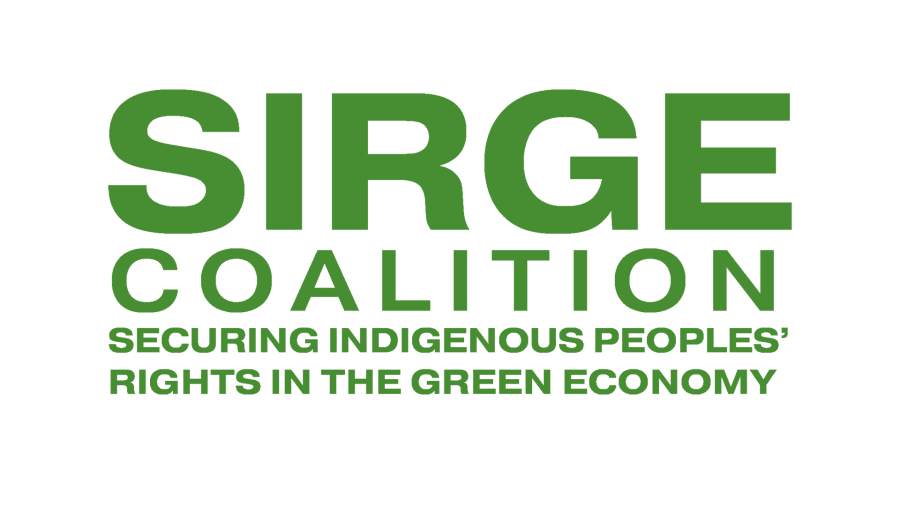The hallmark of Cultural Survival’s work in the international indigenous rights arena over the past 31 years has been the depth and diversity of our programming. The problems faced by the world’s indigenous peoples are of such gravity and scope that we decided early on that a multi-faceted approach, bringing to bear the expertise of scholars and specialists from all walks of life, was warranted.
One of our greatest priorities has been to alert future world citizens to indigenous perspectives and struggles. We achieve this by working to ensure the inclusion of indigenous voices and visions within school course materials. Information regarding indigenous history and culture is lacking within social studies curricula in the United States and educators with whom we work often comment that indigenous peoples—who comprise the bulk of the diversity of the world’s 5,000 language groups and cultures—are often misinterpreted or excluded in the classroom. Cultural Survival’s many student conferences have brought together youth from the northeastern United States and young and upcoming indigenous leaders from a multitude of countries. By building partnerships between local schools and the international indigenous youth movment, we facilitate problem solving on a number of levels. Our curriculum resource packets have also provided a tool for teachers to work information about indigenous cultures and issues into their coursework. Some material from this issue’s focus on Alaska, for example, will be adapted for use in a curriculum packet about sovereignty issues in Hawaii, Alaska, and mainland United States.
Cultural Survival applauds the decision of the Permanent Forum on Indigenous Issues, the first official United Nations body where indigenous representatives nominated by indigenous peoples can be heard as members, in choosing indigenous children and youth as the theme of its second meeting.
The U.N. Permanent Forum on Indigenous Issues, an advisory body to the Economic and Social Council, promises problem-solving and partnership-building between nations and states on an unprecedented scale. As a body whose mandate is to discuss indigenous issues related to economic and social development, culture, the environment, education, health, and human rights, the forum is well placed to tackle the issues of youth in an all-encompassing way.
The Permanent Forum’s Rapporteur, Canada’s Willie Littlechild (or “Walking Wolf” in Cree) said that the focus on children and youth at this year’s forum—held in May at the U.N. Headquarters in New York—was an inspiration. “Globally, there are some 350 million indigenous people. About 180 million of them are children,” said Littlechild. “The forum, therefore, has addressed the issues of the majority of the world’s indigenous people.” Littlechild was delighted with the outcome, though he acknowledged that translating words into action would be a challenge.
The second session was called to order on the morning of May 12 by Taino representative Roberto Mucaro Borrero of Puerto Rico on his conch shell. Tadodaho Chief Sidney Hill, spiritual leader of the Six Nation Haudenosaunee—accompanied by an honor guard of Onondaga Nation children—welcomed visitors from six continents with a traditional blessing.
Then in a series of interactive dialogues and open debates over two weeks, speakers representing over 500 indigenous groups stressed the importance of educating youth in their own cultures and languages, encouraging them to stay in school, and improving their access to a decent education. Many pointed to the high suicide rate, brought on by miserable living conditions, racism, and unemployment. Others emphasized the grave risks to the health of indigenous youth posed by alcohol, drugs, and industrial pollutants, and discussed the lack of modern health care services to meet their needs. Speakers also stressed the value of maintaining traditional medicines and healing practices and passing them on to the next generation.
Nine sets of concrete recommendations and seven draft decisions were delivered to the U.N. Economic and Social Council for action. The forum recommended that:
1. The trafficking and sexual exploitation of indigenous girls be addressed as a matter of urgency by the United Nations system and member states.
2. The human rights and self-esteem of indigenous youth be promoted by policies and programs designed to recover and conserve their languages, strengthen their cultures, and reaffirm the importance of their traditional knowledge.
3. Incarcerated indigenous children be protected, humanely treated, and rehabilitated. 4. Holistic health programs for indigenous children be provided by states and the problem of malnutrition be addressed by states through the adoption of special measures to ensure and protect the cultivation of traditional food crops.
5. The prevalence and causes of suicide among indigenous youth be studied by the World Health Organization.
6. An in-depth comparative study of legal frameworks and social programs for indigenous youth be conducted, especially in light of the massive exodus of indigenous youth from the countryside to the city.
7. Academic institutions to train indigenous leaders be created and curriculum on indigenous peoples be developed by public and private universities. The forum called upon states to reduce youth illiteracy, truancy, and drop-out rates, and to provide primary education in indigenous communities. It also recommended that governments introduce indigenous languages into public administration in indigenous territories and that U.N. bodies support indigenous media and promote the engagement of indigenous youth in indigenous programming.
In his concluding remarks, Permanent Forum Chairperson Ole Henrik Magga of Norway said that the Permanent Forum represents a new form of partnership between indigenous peoples and states—the first international body to take a holistic approach to indigenous issues. While he acknowledged that interactive dialogue between forum members and the United Nations system had intensified over the past year, he warned that the success of the forum was dependent on being able to witness change at the grassroots level. “We must cooperate with regional organizations to reach the poorest, most marginalized of indigenous peoples,” Ole Henrik Magga insisted.
Ian S. McIntosh is senior editor for Cultural Survival.


